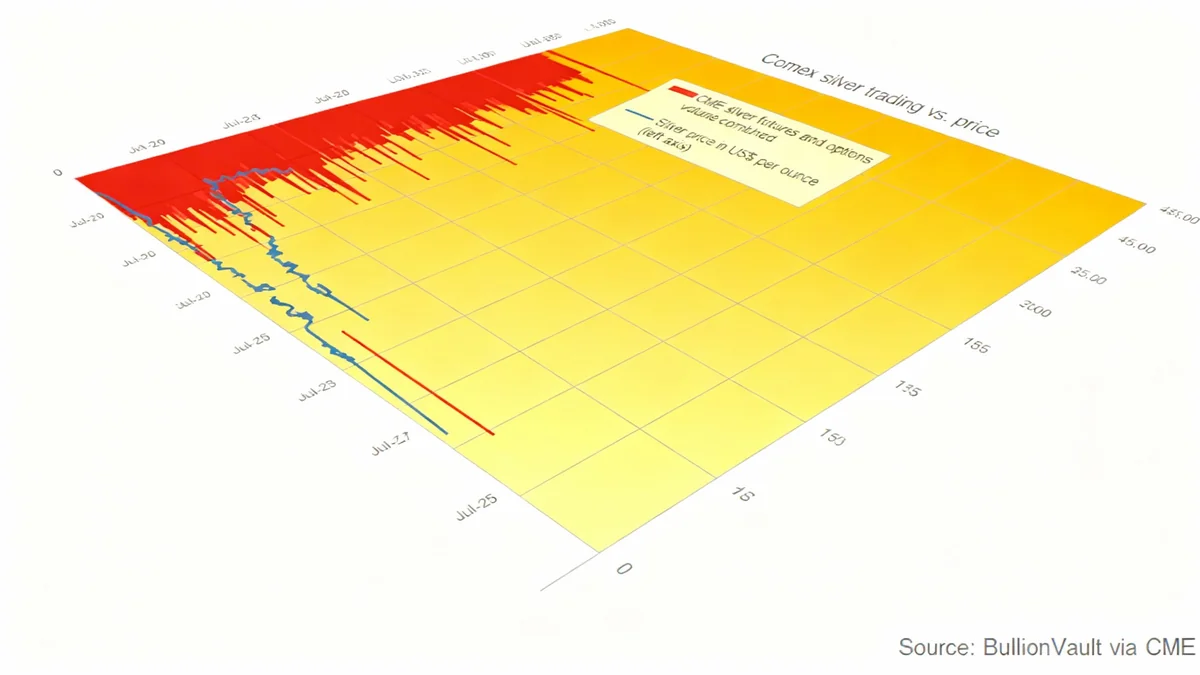Market analysts are closely watching the Federal Reserve's next steps on interest rates following recent comments from Chairman Jerome Powell. This scrutiny comes as major technology companies report mixed quarterly results, creating a complex landscape for investors heading into the final months of the year.
A significant development capturing attention is Nvidia's market capitalization reaching an unprecedented $5 trillion. This milestone highlights the immense influence of a few key players in the technology sector and raises questions about market concentration and future growth potential.
Key Takeaways
- Investor focus remains on the Federal Reserve's potential interest rate decisions for December.
- Nvidia's market capitalization has surpassed the $5 trillion mark, signaling its dominant position in the market.
- Quarterly earnings from tech giants like Microsoft, Alphabet, and Meta show varied performance and outlooks.
- Analysts are identifying specific overvalued stocks to consider selling and undervalued stocks that may present buying opportunities.
Federal Reserve's Stance Creates Uncertainty
Following the latest Federal Open Market Committee meeting, Chairman Jerome Powell's comments have left the door open for future monetary policy adjustments. While no immediate changes were announced, the financial community is now parsing his words to predict whether an interest rate cut could occur in December.
The central bank's decisions are pivotal, as they directly influence borrowing costs, consumer spending, and overall economic activity. A potential rate cut could stimulate the market, while holding steady or hinting at future hikes could temper investor enthusiasm. This ambiguity is a primary driver of current market sentiment.
Why the Fed's Decision Matters
The Federal Reserve's interest rate policy is one of the most powerful tools for managing the U.S. economy. Lower rates can encourage borrowing and investment, boosting economic growth, while higher rates can help control inflation by slowing the economy down. For investors, these decisions impact everything from stock valuations to bond yields.
Nvidia's $5 Trillion Milestone
In the corporate world, Nvidia has achieved a remarkable milestone, with its market valuation crossing the $5 trillion threshold. This positions the company among an elite group of global corporations and underscores the market's confidence in its role in the artificial intelligence and computing sectors.
This massive valuation is not just a number; it reflects the company's significant influence on the broader market, particularly technology-focused indexes. As Nvidia's stock moves, it can have a ripple effect across the entire S&P 500. Analysts are now closely watching to see if this growth is sustainable and what it means for the competitive landscape.
Nvidia's ascent to a $5 trillion market cap places it in a rare category of companies, highlighting the massive investor appetite for firms leading the charge in generative AI and advanced semiconductor technology.
A Closer Look at Tech Sector Earnings
The recent earnings season has provided a detailed look into the health of the technology industry. Reports from several key players have been a mixed bag, offering different signals about the sector's trajectory.
The Giants Report In
Microsoft and Alphabet, two of the industry's titans, delivered earnings reports that caught the attention of investors. While both companies continue to show strong performance in core areas, their forecasts and performance in emerging segments like cloud computing and AI are being heavily scrutinized.
Similarly, Meta Platforms and Amazon.com have released their latest figures. These reports are critical for understanding trends in digital advertising, e-commerce, and cloud infrastructure. Apple's results are also a key indicator of consumer spending habits and the health of the high-end electronics market.
"The latest forecasts from these tech heavyweights are providing a roadmap for what to expect in the coming quarters. We're seeing a divergence in strategy and performance, which creates both risks and opportunities for investors."
Semiconductor and Security Outlook
Beyond the mega-cap companies, the performance of firms like Advanced Micro Devices (AMD) and Qualcomm provides insight into the semiconductor industry. Their earnings are a bellwether for everything from personal computing to the mobile phone market. These reports are being watched for signs of demand stabilization or growth.
In the cybersecurity space, Fortinet's quarterly results are under the microscope. As businesses continue to invest heavily in digital security, Fortinet's performance can indicate broader trends in enterprise IT spending and corporate confidence.
Identifying Market Opportunities
Based on recent performance and current valuations, market strategists are highlighting specific stocks that appear either overvalued or undervalued. This analysis aims to help investors navigate the current environment by rebalancing their portfolios.
Stocks to Consider Selling
Some companies, after a period of strong performance, may now be trading at prices that exceed their fundamental value. Analysts have pointed to stocks that have become expensive relative to their earnings potential. Among the names recently identified as potentially overvalued are:
- Welltower (WELL)
- Barclays (BCS)
The rationale for selling is often tied to the belief that the stock's price has outpaced its growth prospects, increasing the risk of a future correction.
Potential Undervalued Buys
On the other side of the ledger, some stocks have fallen into what analysts consider undervalued territory. This can happen for various reasons, including temporary market headwinds or a broader sector downturn that unfairly punishes a solid company. Stocks recently flagged as potentially undervalued include:
- Meta Platforms (META)
- UnitedHealth Group (UNH)
These companies are often seen as having strong long-term fundamentals that are not currently reflected in their stock price, presenting a potential buying opportunity for value-oriented investors.
Growth vs. Value Investing
The current market debate often centers on growth stocks versus value stocks. Growth stocks are shares in companies expected to grow faster than the overall market, like many tech firms. Value stocks trade at a lower price compared to their fundamentals, such as earnings and sales. The choice between them often depends on an investor's risk tolerance and the broader economic outlook.
As the year draws to a close, the interplay between central bank policy and corporate performance will continue to shape the investment landscape. Investors are advised to monitor economic data and company earnings closely to make informed decisions in a complex market.





